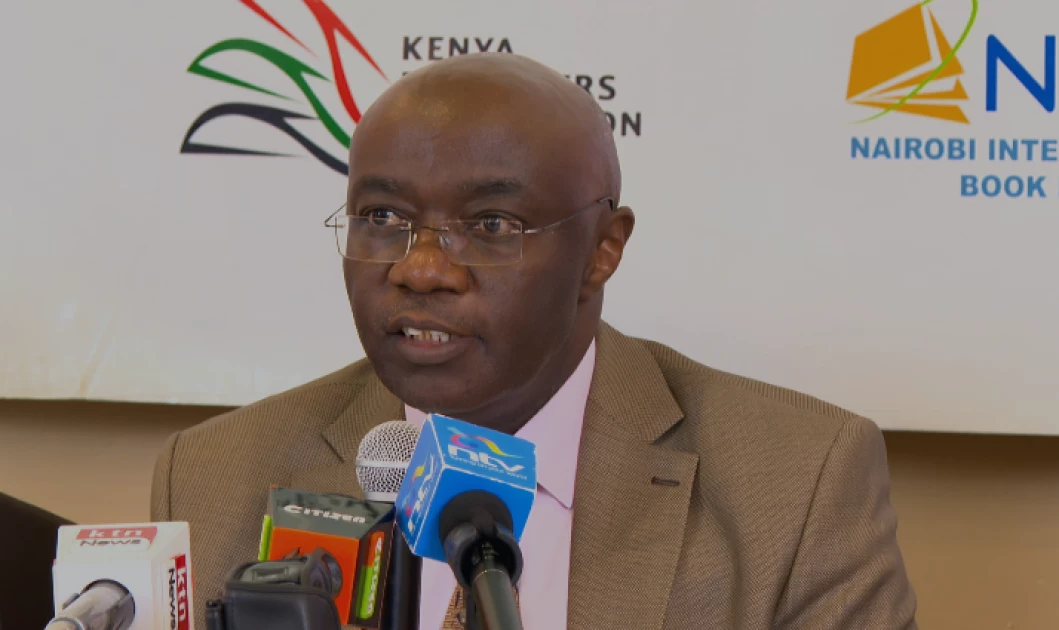The association’s chairperson Mr. Kiarie Kamau reckons that by having VAT imposed on textbooks only serves to make textbooks expensive and unaffordable to the common citizen.
“At 16%, this tax (VAT) only serves to make books more expensive, hence unaffordable to the common mwananchi., the ‘hustler’. If I may. We therefore call upon the government to scrap VAT on books, as a way of making knowledge affordable to all, hence promote lifelong learning, amd grow the knowleged economy,” said Mr Kamau.
He was speaking in a press briefing ahead of this year’s Nairobi International Book Fair set to take place from Wednesday, September 27 to October 1, 2023 at the Sarit Centre Expo in Westlands.
The Kenya Publishers Association Chairperson pointed out that the current high cost of living has led to low purchasing power hence low uptake of general reading materials.
“Therefore even though publishers are benefitting from the government textbook tenders, sales of general reading materials through bookshops have diminished. A quick check on the market shows that Kenyans are prioritizing food, hence, other items such as books are put in the back burner,” said Kamau.
Another challenge, the publishers continue to grapple with is the piracy menace which has resulted in the sale of books in digital versions at throw-away prices.
On the upcoming Book Fair whose theme is Nurturing Talent Through Publishing, Mr Kamau noted that this year’s event has attracted many exhibitors from all over Africa and other parts of the world.
“In particular, we are delighted that the African Publishers Network (APNET) has sent a powerful delegation with representatives from all corners of the continent. All these exhibitors will have an opportunity to strengthen collaborations and partnerships with local players, as well as initiating, nurturing and developing new ones,” he stated.
Kamau acknowledged that the Book Fair is happening against the backdrop of concrete private-public partnership that exists between the Government of Kenya and book publishers.
“ Since 2018 when the government changed the book procurement model from a decentralised system to a centralised one, publishers have serviced huge textbook tenders. This involves printing of tens of millions of copies and distributing the same to all public schools in the country. To-date, learners from Grades One to Seven do have all the relevant textbooks to the ratio of 1:1. The same applies to those in public secondary schools,” he said.
By Fred Odanga.
